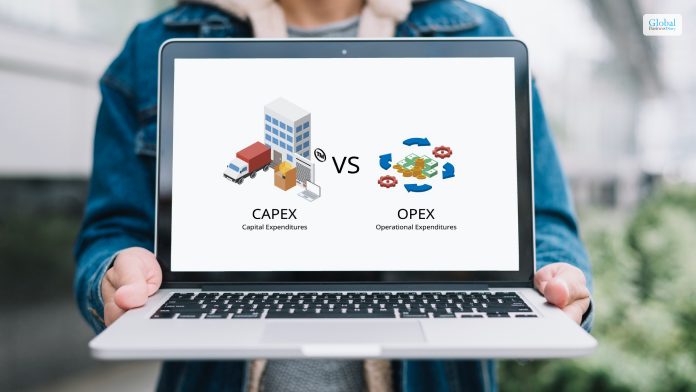Top 10 Effective Applications of AI in Fintech

AI in fintech has leveraged more value for customers in the financial services industry than anything else. It made transactions safer and more accessible. At the same time, it plays a crucial role in improving the speed, efficiency, and stability of any transactions.
Financial technology, or FinTech, is an innovation in financial services. It aims to develop new ways of providing financial services. Moreover, it improves the channels of service delivery.
Importance of AI in FinTech

We see AI growing prominently across all industries. Above all, the AI market was valued at USD 2,575.16 Billion in 2023. AI encompasses 36.84% of the technology market’s share in Northern America.
Such exponential growth has impacted the FinTech industry in a big way. AI can impact the FinTech industry in aplenty ways.
To speak of some, fraud detection, credit risk protection, and accurate revenue forecasting are the ones to begin with.
Overview of AI Applications in the Financial Industry
In this article, we will explore some critical AI features. Features like data analytics, predictions, forecasting, data retrieval, performance measurement, and real-time calculations are most effective in FinTech.
Role of AI in the FinTech Industry

There are many aspects of the Fintech industry, heavily influenced by AI and its many applications. AI in fintech is the driving force shaping the future of our transactions.
Enhancing Analytics and Predictions
Data process is a leading role of AI in fintech.
AI can process 10 billion transaction messages and instructions every day. It is enough to show the data processing abilities of AI.
What’s better than data processing?
Real-time data analytics. It is one of the other efficient features of AI in fintech.
Data analytics helps financial companies identify potential risks, guide better investments, and personalize their financial services.
RBC, Deutsche Bank, JP Morgan, and others actively use AI-based data mining services to improve customer response feed and service delivery.
Improving Customer Support Through Virtual Assistants and Chatbots
Chatbots and virtual assistants can give customers round-the-clock services without manual interference.
Chatbots can resolve multiple customers’ queries. They can also resolve customers’ issues as well.
Providing Personalized Recommendations Based on Customer Preferences
Most AI can track data sets from feasible sources. For instance, AI studies the unique needs and aspirations of a customer. After that, it can send tailored recommendations to the customer. Experts say that personalized marketing is paramount for customer loyalty.
In the US, Wells Fargo’s predictive banking is quite popular. The bank uses AI for the same benefits discussed above. At the same time, Bank of America uses its AI-powered virtual assistant, Erica, to do the same.
Handling High Volumes of Customer Inquiries Simultaneously
Chatbots have simplified banking in the US. As new financial services are added to the FinTech sector, AI in fintech is becoming more meaningful.
Chatbots can efficiently work 24×7 to process customer inquiries through AI’s natural language processing feature.
No human intervention is required. It is only an algorithm. So it can run simultaneously on all devices.
Evolution of FinTech

FinTech has evolved to teach more new services in its repertoire.
Its evolution is also linked with the faster movement of money.
Growth of FinTech services
As we see, most banks and NBFCs use AI in FinTech. As a result, FinTech can provide many unique and much-needed services.
For instance, retail credit card services peaked after the inclusion of AI in the US FinTech sector. At the same time, services like online portfolio management, online budgeting, peer-to-peer lending, and other services are also new.
Disruption of Traditional Banking by FinTech
The incumbent traditional banks are challenged by the disruptive growth of AI in FinTech. Neobanks challenge traditional banks by combining AI and fintech.
The neobanks can overcome territorial limitations and provide services 24×7 using AI’s NLP and blockchain protection methods.
Impact of AI on Job Roles in the Financial Industry
Yael Malek from Bluevine said that AI can account for several job losses. However, experts also feel that AI can leverage the working potential of humans in the FinTech sector.
On the one hand, AI can perform more methodized and recurring or repeated tasks like answering customer queries.
A data set of customer queries over a given timeframe from the same customer demographics, receiving similar services will include almost the same and repeating queries.
AI can easily track the pattern in their queries and use modeled replies to satisfy them.
So, the human workforce can focus on analytical and strategic roles. For instance, data analytics experts can scan the customer query database to find unique questions. If AI cannot answer those convincingly, new algorithm changes will be needed.
So, AI will also lead to the creation of many new jobs. The job dynamics will change, though.
Blockchain Technology

Bettina Warburg feels that blockchain is a “decentralized database that stores a registry of assets and transactions across a peer-to-peer network.”
Potential of Blockchain in Transforming Financial Transactions
A blockchain creates an open field within an encrypted pathway for financial transactions. You can think of it as a free-flowing pipeline with 0 or minimal obstructions. However, the pipeline is leak-proof.
That’s how blockchain funnels all financial transactions that use it.
So, what happens?
The transactions are safer than before. No hackers can infiltrate the firewall of the blockchain. At the same time, the transactions are faster as they occur peer to peer, directly.
Role of AI in Optimizing Blockchain Systems
AI performs an essential role in blockchain. It analyzes the programming and functioning of the blockchain’s network. After that, it can recommend improvements and identify its inefficiencies.
Ways AI is Transforming FinTech Companies

AI plays a crucial role in the new and innovative FinTech services offered.
1. Instantaneous Financial Services
One of the phenomenal examples of instantaneous services is the chatbot-based customer replies. Most of them use AI algorithms.
AIs like ChatGPT can extract information from the internet and use neural learning to create human-like responses.
So, it can process and answer all your financial queries in seconds.
2. Online Retail Banking
Experts say that AI fintech is the basis of online retail banking services. AI can automate most retail banking services through chatbots. It can also detect fraud easily. At the same time, customers can get personalized investment suggestions using AI for fintech.
3. Investments and Trading
Traders can use AI tools like stock screening to manage and improve portfolios. AI and fintech can work together to perform better asset allocation, analysis of individual stock performance and diversify trading portfolios.
4. Peer-to-peer Lending
AI can derive data from the bank’s databases to create secure and direct transaction channels. Hence, peer-to-peer lending has become faster and safer.
5. Financial Advisory Services
AI can customize your risk tolerance and financial habits to recommend the best investment, savings, and general banking suggestions.
6. Portfolio Management
AI can screen top-performing stocks across multiple sectors to diversify your portfolio. It may also assess the asset value of individual stocks to find the best growth stocks.
7. Budgeting Tools
AI can detect contingent and recurring costs of a fintech company. Eventually, it can also automate most services to cut down costs.
In the same way, your bank’s AI can analyze your spending and banking habits to create tailored budgets.
Challenges and Limitations of AI in FinTech

AI is a disruptive yet emerging technology. So, it is bound to have flaws.
Need for Skilled AI Developers
The US has only 150000 ML engineers. However, there is a gap of 27 million AI engineers, programmers, and developers in the US. It’s undoubtedly a big challenge that the American fintech sector also faces.
Integration of AI Technologies in Compliance with Legal Standards
There is no comprehensive regulation to directly track and monitor the use and applications of AI in the US. At the same time, case law suggests that AI-generated outputs cannot be the sole basis of operations in any sector.
The same applies to the fintech sector. There may be bugs in the AI algorithms.
Potential Shifts in the Financial Industry Due to AI Advancements
AI has incorporated a new genre of financial services. For instance, AI introduced algorithmic trading in the US. However, bugs in algorithms can disrupt financial decisions.
Conclusion
There are many cases of AI being used in fintech. On one hand, it has become the guardian of financial fraud detection. On the other hand, it created new avenues of data processing. So, you may see more automation due to AI in the following time.
AI also plays a crucial role in managing personal finances. The online banking services of emerging fintech includes AI. So, most of us use AI suggestions in our banking decisions. AI will also play a more strategic role in making key business decisions. However, the US needs more capable AI developers and programmers to make AI inclusion more competent and risk-free.
For More Informative Business Articles Click Below!!













